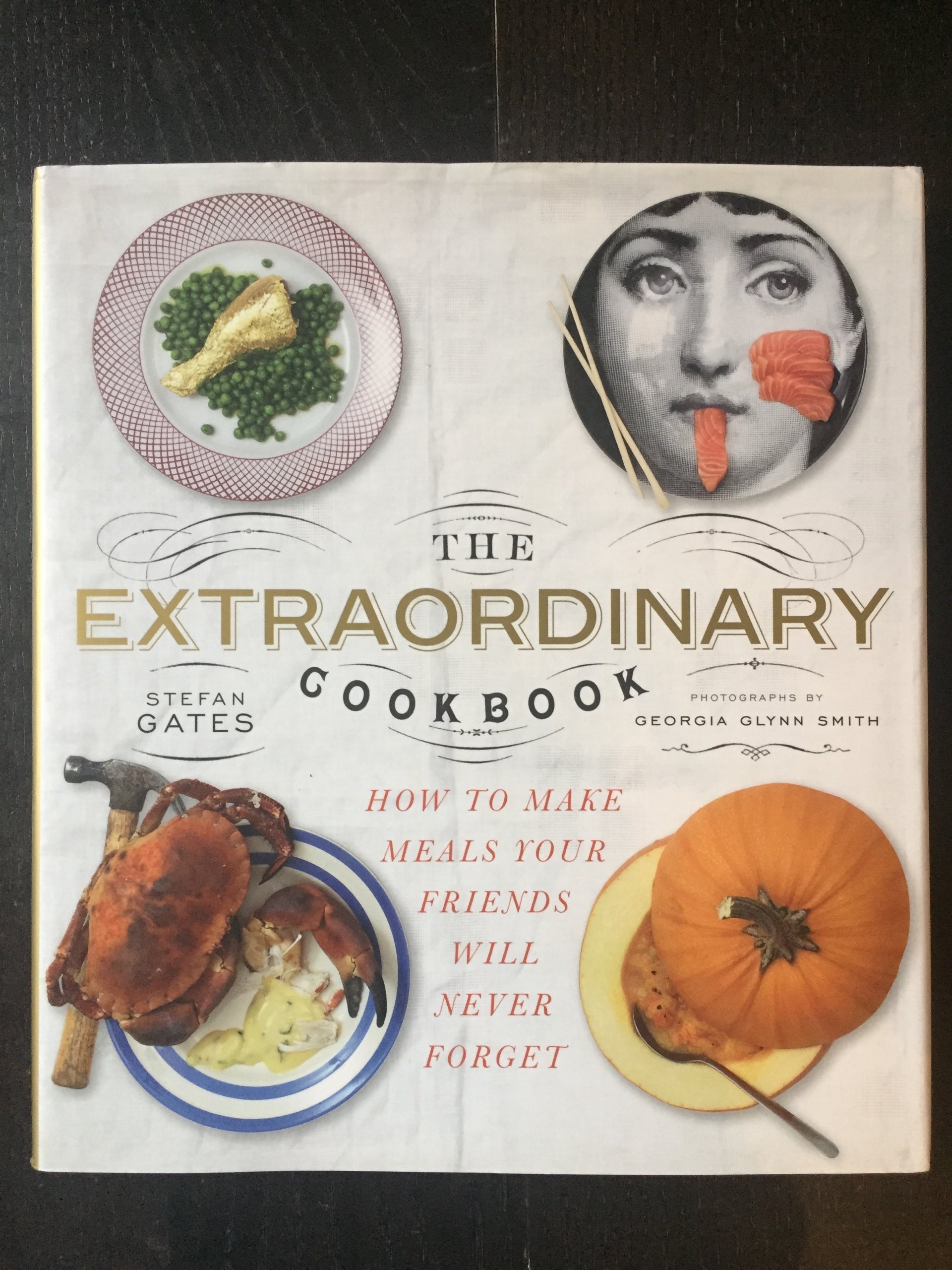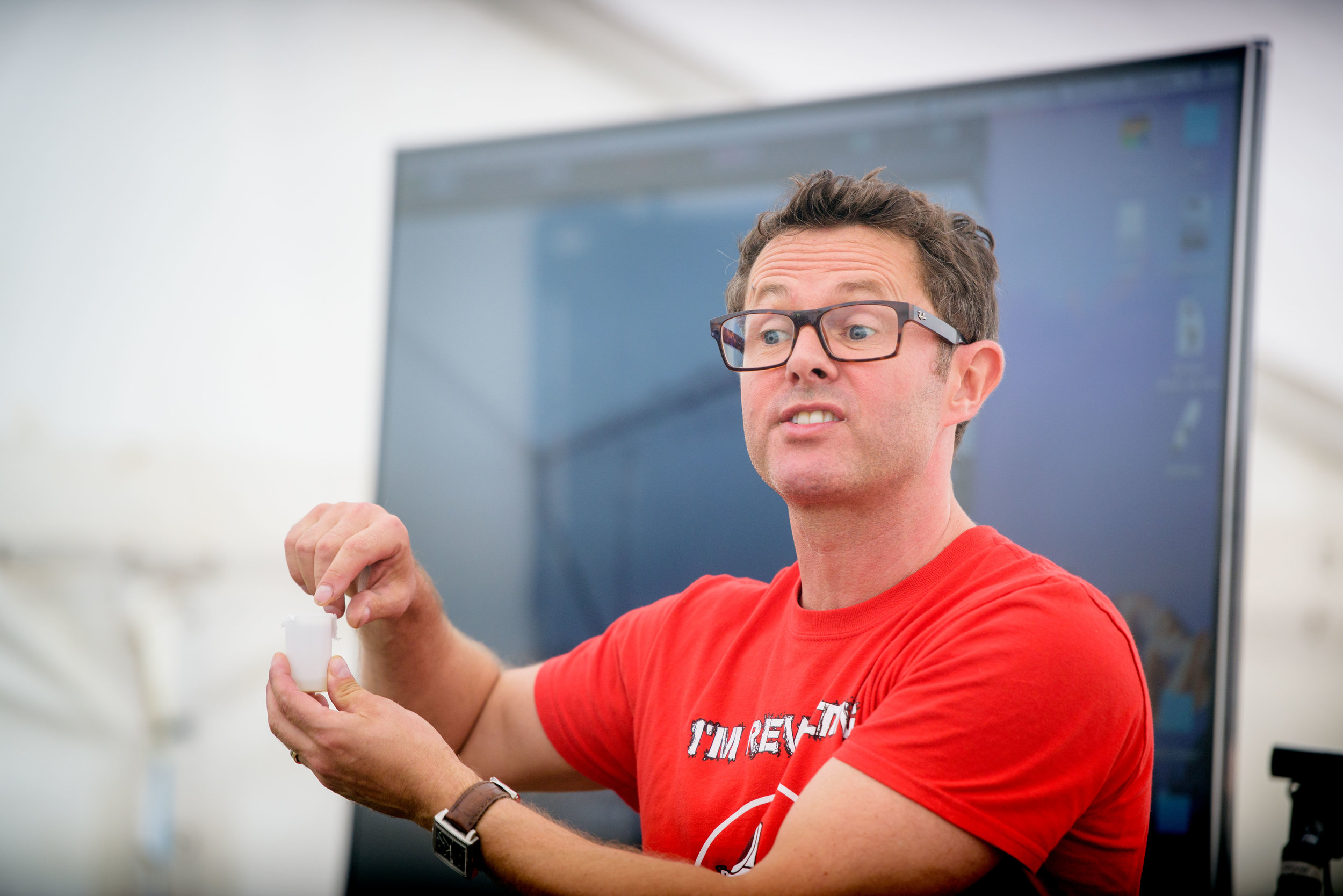Food adventures

Vortex cannons, edible insects, glow-in-the-dark drinks and fragrant ‘fartology’ – this is science according to TV presenter, author and professional ‘food adventurer’ Stefan Gates.
“I don’t climb mountains for kicks, I put weird things in my mouth and find out what happens!” he laughs.
Stefan Gates is basically the science teacher we all wish we’d had. He first discovered the delights of food experimentation when living the archetypal student life-on-a-shoestring; forever tasked with making meals for his friends, Stefan’s lack of disposable income forced him to get inventive. He then worked in the BBC’s comedy department for several years, although according to Stefan he was a ‘crap producer’ because rather than focusing on the task in hand, the prospect of lunch was always far more interesting.
“All I cared about was food, so I started writing this book out of the blue. Quite frankly it was unpublishable! My first piece was about how to cook your child’s guinea pig and serve it to them at the table. I wrote it as a bit of a joke, but then I had this lightning bolt moment when I realised that the reason it was funny and shocking was because it was about food. It was about taking food and making it relevant and exciting,” he explains.
“I started writing lots of stories; about cannibalism, food and religion, and food and science, and I was just so excited about it, more so than about anything I’d ever done in my life! I realised that food isn’t just the thing sat in front of you that you stick in your gob, it’s about the history, the story, where it comes from and what it means.”
Soon after this epiphany, Stefan teamed up with a chemistry professor and his work became more and more about science and the science of food. Stefan has since made over 20 television programmes, each demonstrating his unique ability to take complex scientific concepts and make them exciting, fun and easy to understand. These include his hugely successful CBBC children’s series Gastronuts and Incredible Edibles and primetime shows such as BBC One’s Food Factory and BBC4’s Can Eating Insects Save The World?. BBC Two’s Cooking in the Danger Zone saw Stefan and an intrepid team travel the world to discover how people cook, eat and survive in extreme conditions, sampling local delicacies such as radioactive brandy in Chernobyl, fat-tailed sheep in Afghanistan, and rotting walrus in the Arctic.
“Cooking in the Danger Zone is one of the things I am most proud of. It was scary though! I had two very young kids at the time and occasionally I’d think ‘what the hell am I doing?’,” Stefan laughs.
“Rotten walrus liver may sound weird, but actually the weirdest stuff I’ve ever eaten are things that have gone through strange iterations and have a weird history. Like margarine – it’s made using caustic soda and zinc sulphate and all these strange things go in and then are taken out of it. So in actual fact, some of our very familiar foods are really weird,” he adds.
“I do eat lots of insects though. I’ve actually got some on the table in front of me right now!”
As well as his broadcasting back catalogue, Stefan has written an impressive nine books, ranging from Science You Can Eat and Stefan Gates on E Numbers to Insects: An Edible Field Guide and his most recent release, Fartology, which dares to tackle the sensitive subject of passing wind by asking questions such as: what are farts made of and why do they smell bad? Do spiders fart? And what would happen if we didn’t fart? The result is a frank, fascinating and very funny tour of the chemistry, physics and biology of our bottoms.
“Once you start looking at the acoustics of farting you can start playing with incredible thermodynamics, fluid dynamics and all these extraordinary things!” explains Stefan energetically.
“I usually talk to people about things that they might be bored by, so fartology is for people who think that they hate science! They end up having a wild time, but also learning bucket loads.”
This month, Stefan is bringing one of his extraordinary live shows to the fourth annual Kew Science Festival, which takes place in The Royal Botanic Gardens. The two-day event is packed with workshops, hands-on experiments, shows and behind-the-scenes tours that promise to captivate children and adults alike. Stefan’s show Gastronaut Live: The Wildest Food Show on Earth is all about food and science, and is a combination of bizarre plant biology, explosive chemistry, sensory perception and spectacular physics, revealing some of the secrets behind the foods that we eat every day.
“After I started making food programmes with kids, I quickly realised that kids don’t care about recipes and cooking, not really. If it’s hands on and you’re cooking with them then yes, but a recipe on a TV programme? No. Also, I never talk to kids like they’re kids, I talk to them like they’re mates. It’s more ‘COME ON! LET’S SEE HOW MANY OF YOU WE CAN KILL IN THIS NEXT DEMO!’ And they love it!
“So the show involves loads of energy. We’ll get people up on stage and create chemical reactions in their mouths by feeding them absolutely revolting things, and we’ll have a whole load of edible insects there, as well as some live ones. We’re doing a bunch of food rockets, and there’ll be a section on farting and acoustics, and I’ll be bringing my absolutely ginormous whoopee cushion with me,” he continues.
“Also, I always do a botany demo at Kew and this year is about tonic water, which has this amazing ability to glow under UV light. It’s all about quantum mechanics, and the quirks of quinine molecules, but it’s absolutely beautiful and an amazing piece of science. We’ll turn off all the lights, explain how it works and then drink glowing drinks!”
The theme for this year’s festival is Rare and Threatened and will see Kew’s many scientists venturing out of their labs to bring their scientific work to life in the Gardens. Visitors will have the opportunity to go on a journey with Google’s 360-degree virtual reality goggles, get futuristic with liquid nitrogen in the Cryo Corner, learn how to be a honey detective and more, as well as experiencing Stefan’s giant whoopee cushion, of course.
However, behind all the fun and engaging activities, the underlying message is one that is important to us all.
“On one level all this stuff about experimenting with food and going on food adventures might sound like a bit of fluff and like we’re mucking around, but it’s actually about the future of food and the survival of the planet,” Stefan says.
“It’s absolutely vital if we’re going to carry on as a human race because we need to diversify. Diversification might sound a bit dull but it’s really important, and my job is to make it fun and fascinating, and – quite frankly – to blow loads of stuff up in front of you!”
Sounds like it’s time to grab a pair of goggles, slip on a lab coat and get stuck in…
Published in the August 2019 issues of The Barnes Magazine, The Richmond Magazine and online at Essential Surrey and SW London






